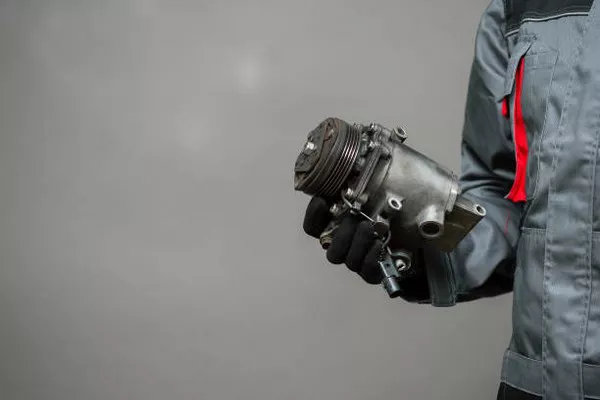When your refrigerator stops cooling efficiently or ceases to cool altogether, one of the potential culprits is a faulty compressor. The compressor plays a crucial role in the refrigeration cycle, compressing refrigerant gas and pumping it through the coils to dissipate heat and cool the interior of the fridge. Replacing a compressor is a significant repair job and often a costly one. In this article, we’ll delve into the factors that influence the cost of replacing a refrigerator compressor, the steps involved in the process, alternative solutions, and tips on managing or avoiding these expenses.
Factors Influencing the Cost
The cost of replacing a refrigerator compressor can vary widely depending on several factors:
Type and Brand of Refrigerator: Different brands and types of refrigerators have varying compressor designs and replacement costs. High-end models or those with specialized compressors may incur higher expenses due to proprietary parts or complexity in repair procedures.
Age of the Refrigerator: Older refrigerators might have parts that are more challenging to source or may require more labor-intensive repairs. In some cases, the cost of replacing a compressor in an older unit could approach or exceed the cost of a new refrigerator.
Extent of Damage: The severity of the compressor damage or failure affects the repair cost. Minor issues like electrical faults or capacitor problems might be less expensive to fix compared to a complete compressor failure.
Warranty Coverage: If your refrigerator is still under warranty, the cost of replacing the compressor might be partially or fully covered. Manufacturers typically offer different warranty periods for compressors, ranging from 1 year to up to 10 years for some high-end models.
Service Provider: Costs can vary between different repair companies or technicians. Larger companies might charge more for overhead costs, while smaller, independent repair services could offer more competitive rates.
Location: The cost of repairs can also vary depending on your geographic location. Urban areas generally have higher labor rates and parts costs compared to rural areas.
Additional Parts or Repairs: Sometimes, replacing a compressor may require additional parts such as refrigerant, driers, or seals. These can add to the overall cost of the repair.
Steps Involved in Compressor Replacement
Replacing a refrigerator compressor is a complex task that requires specialized knowledge and tools. Here are the typical steps involved in the process:
Diagnosis: The technician will first diagnose the issue to confirm that the compressor is indeed the problem. This may involve checking electrical connections, testing capacitors, and performing pressure tests on the refrigerant system.
Refrigerant Recovery: If the refrigerant has leaked or needs to be replaced, the technician will recover the remaining refrigerant to prevent environmental damage and comply with regulations.
Compressor Removal: The old compressor is removed carefully to avoid damaging other components of the refrigerator.
Installation of New Compressor: The new compressor is installed and connected to the refrigerant lines and electrical system. Proper vacuuming and charging of the refrigerant are critical at this stage to ensure optimal performance.
Testing: Once installed, the technician will test the refrigerator to ensure the compressor is functioning correctly and that the cooling system is operating efficiently.
Reassembly and Cleanup: Any components that were removed during the repair process are reassembled, and the work area is cleaned up.
Cost Breakdown
The cost breakdown of replacing a refrigerator compressor typically includes:
Labor Costs: This is often the most significant portion of the expense, covering the technician’s time and expertise. Labor rates can vary widely, but expect to pay for several hours of work.
Parts Costs: The cost of the compressor itself varies depending on the brand and model of your refrigerator. Additionally, any other necessary parts such as refrigerant, driers, or seals will be included in this category.
Service Fees: Some repair companies may charge a service fee or diagnostic fee in addition to the cost of parts and labor.
Alternative Solutions
Before committing to replacing the compressor, consider the following alternatives:
Repair vs. Replace: Evaluate the age and overall condition of your refrigerator. If it’s nearing the end of its lifespan or has had multiple repair issues, investing in a new refrigerator might be a more cost-effective long-term solution.
Second Opinion: If you receive a high quote for compressor replacement, consider getting a second opinion from another repair technician. It’s possible that another expert may offer a more competitive price or a different diagnosis.
Check Warranty Coverage: Review your refrigerator’s warranty coverage to see if the compressor replacement is covered, either fully or partially.
DIY Repair: While not recommended for everyone due to the complexity and safety considerations, some minor issues like capacitor replacements may be within the capabilities of a skilled DIYer.
Tips for Managing Repair Costs
Regular Maintenance: Perform regular maintenance such as cleaning condenser coils and checking seals to prolong the lifespan of your refrigerator.
Compare Quotes: Obtain multiple quotes from different repair companies or technicians to ensure you’re getting a fair price.
Consider Energy Efficiency: When replacing your refrigerator, consider investing in an energy-efficient model. While it may have a higher upfront cost, it can save you money on energy bills over time.
Insurance Coverage: Check if your homeowner’s insurance policy covers major appliance repairs, including refrigerator compressors.
See Also CHOOSING THE RIGHT OIL FOR YOUR AIR COMPRESSOR
Conclusion
Replacing a refrigerator compressor is a significant repair that can be costly depending on various factors such as the type of refrigerator, extent of damage, and labor rates in your area. Understanding these factors and exploring alternative solutions can help you make an informed decision about repairing or replacing your refrigerator. Always consult with a qualified technician to diagnose the issue accurately and provide recommendations tailored to your specific situation. By weighing the costs and benefits carefully, you can ensure that your refrigerator continues to operate efficiently and reliably for years to come.

